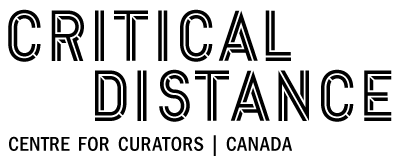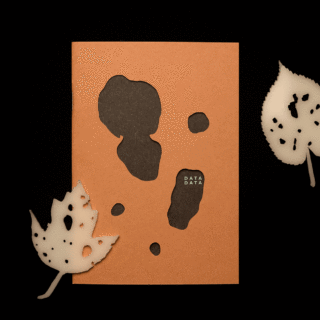EXHIBITION: Living Data, Presumed Dead
August 5, 2022 - August 31, 2022Featuring artist L.M. Ramsey
Curated by Karina Iskandarsjah
Co-presented with Trinity Square Video as part of their 2022 themed commission residency, Ecologies & Cosmologies
Opening Reception
Saturday, August 6, 2022
3 – 5 pm
401 Richmond Building, Suite 122
Artist Statement
Living Data, Presumed Dead is an electronic theatre and mixed-media installation that examines the abstract space that stores trauma in the human brain. Through the mapping of fragmentation boundaries found in both ecological and computational ecosystems, I seek to identify nuanced codes in the micro-traumas — which serve to become conduits toward self-awareness. The clues these patterns offer can help us find healing and a connectedness in our experiences, to both organic and inorganic systems. The exhibition titled Living Data, Presumed Dead comprises four main chapters:
Chapter I : Byte Patterns
Byte Patterns is composed of five photoluminescent acrylic leaf cuts, modelled after herbivory found in the forest ecosystem. Herbivory is the eating of plant parts by animals, it is a key ecosystem process that reduces biomass and density of plants or plant materials, transfers mass and nutrients to the soil or water column and affects habitat and resource conditions for other organisms. Herbivory intensity can determine whether the ecosystem remains healthy or not. How does one record missing data? Tiny bites from a leaf, entire forests erased?
Chapter II : The Theatre of Deletion and Recovery
The Theatre of Deletion and Recovery shows a 3-channel video mapped across nine CRT monitors. Images of North American plant specimens which were at one point declared extinct, and later re-discovered, are slowly eaten away by the deletion process. The loss, and subsequent rediscovery of an entire species can be a very confusing, non-linear, fragmented process. Computationally speaking, when you write data to a drive, the process is at the beginning, linear. Once you delete a file or multiple files, which all have different locations on the disc, you begin the process of fragmentation. When you rewrite those data blocks, the new files, which may or may not take up the available space; are also fragmented. Over time, hard drive performance can slow down as it takes longer to retrieve files scattered across the drive. Furthermore, even after deletion and re-write, the original data can still sometimes be recovered. The only way to complete erasure is to physically scratch the disk or to run an algorithm functionally switching each byte to either one or zero, on or off.
Trauma is what happens when an event you have experienced overwhelms your ability to feel, express and process what has happened through your nervous system. If you do not receive the support or tools you need to process the event, the trauma stays trapped in your body. Trauma responses have traditionally been viewed as a binary function, on or off. The multiple states found in the process of file deletion and recovery reveal a more nuanced approach to understanding our responses. This is reflected in the most recent academic research into Polyvagal Theory.
Chapter III : Cries of Total Erasure
Cries of Total Erasure is recited by a synthetic voice modelled after my own. I develop a mantra, recited over and over in every possible permutation until it loses meaning. This reading lifts us out of a looping, never ending fall of a Shepherd’s tone, accompanied by the beeps, clicks and scratches of my own hand physically connecting a hard drive and scratching the surface of the disc as it spins. It ends with the naturally occurring white noise of a healthy, active data centre
Chapter IV : Data Data
Data Data is a supporting publication and artist multiple. The phrase: ‘Write data, delete data, rewrite data’ is repeated over and over until every word has appeared in every possible position. This is done using code, relying on the pioneering research done into the implementation of permutation algorithms on computing machinery done in the late 1950s and early 1960s. The design of the text blocks reflects the permutation, and the herbivory seen in Byte Patterns, visually fragmenting the rhythmic poem. A small, photo-luminescent acrylic leaf, made from the offcuts of Byte Patterns, will accompany a small edition of the zine.
Click here to purchase Data Data.
————————————————-
Ecologies & Cosmologies [Themed Commission 2022]
A multi-site exhibition across Tkaronto featuring works by Sidi Chen, Jenna Reid + Cassandra Myers, Laura Margaret Ramsey, Shonee, Sarah Holloway, and Maria Simmons
Co-presented by Trinity Square Video, Lakeshore Arts, Whippersnapper Gallery, Critical Distance Centre for Curators, and SpaceMakerII.
Ecologies & Cosmologies presents the 2022 Themed Commissions, which were produced over a summer residency. This year’s theme invites projects that explore and critique different forms of interdependency, networks of life, and destabilize fixed entities/identities/borders through technological, ecological or cosmological metaphors;
The selected projects explore various topics, including; networks of care; spiritual, physical and digital connections in human and nonhuman relationships; environmental speculative fiction; and deconstructing trauma through ecological metaphors.
In reference to the theme of interconnectedness, the selected projects take place in different venues across Tkaronto, culminating in a constellation of public-facing spaces, inextricably linked to the structure of the city and bringing together a number of local artist-run communities.
[SEE MAP OF ALL PROJECTS + VENUES]
The artist acknowledges the generous support of the Ontario Arts Council.

The Themed Commission is made possible by the EQ Bank.

Special thanks to:

Image: L.M. Ramsey
About the Curator(s)
Karina Iskandarsjah
Karina Iskandarsjah is a visual artist and independent curator from Singapore and Indonesia (based in Toronto, Canada). She is interested in exploring non-dominant histories, cultural hybridity, and the deconstruction of power structures.
Find out moreAbout the Artist(s)
Laura Margaret Ramsey
Laura Margaret Ramsey (she/her) is a Toronto-based scholar, imaging specialist and artist. Ramsey is known for her use of data visualisation & sonification to explore the natural world, imaging processes and computational awareness. Her work is heavily influenced by the structure of the archive, the preservation of obsolete technology, science fiction and the algorithmic approaches in data management.
Find out more
